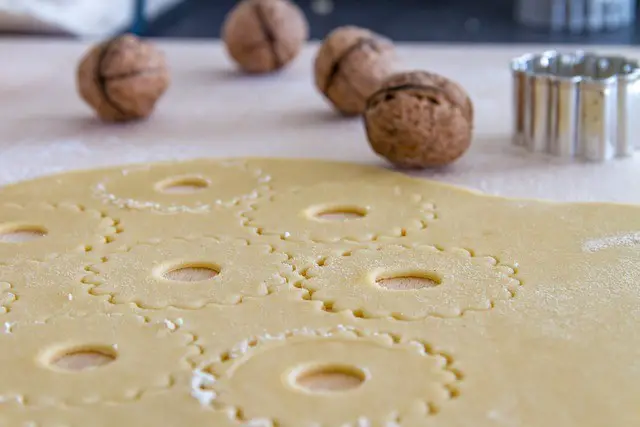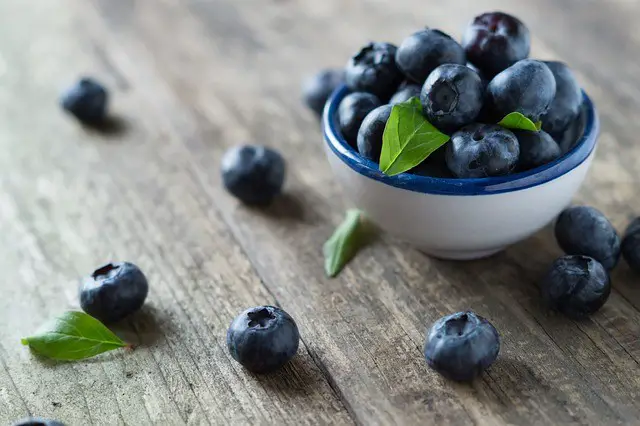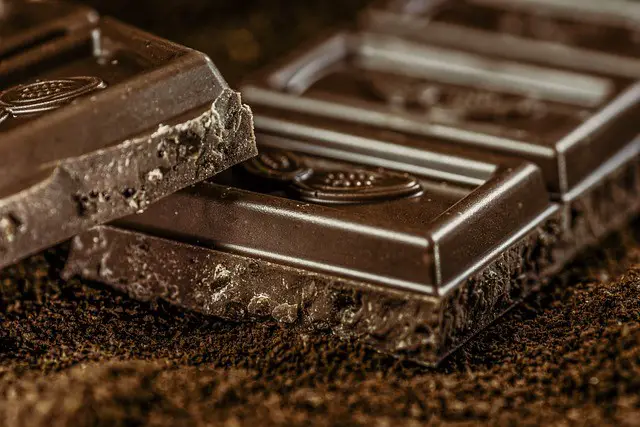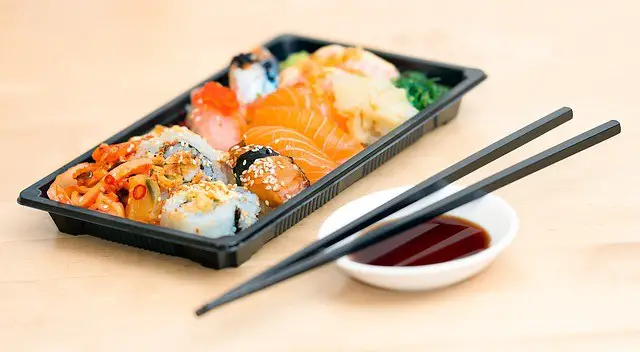A high sugar intake has an impact on your blood sugar levels. Consuming table sugar and other sugary foods will spike your blood glucose levels and increase insulin release. For people with diabetes, this is not a good thing.
But, does this mean that people who cannot control their blood sugar or those on diets for weight loss like the keto diet cannot enjoy sweet foods? What will a sweet tooth use in place of table sugar which will not increase their sugar intake?
Worry not! Low calories sugar has been designed for this reason. To provide sweetness to your taste buds without increasing your carb intake.
In this article, we will discuss what low-calorie sweeteners are. We will talk about which ones are available in the market today. Moreover, you will get to know which of them are natural sweeteners and which are artificial sweeteners. Do you know which of the low-calorie sweeteners you should avoid? Are you aware of the side effects of these sugar substitutes?
No? You are about to find all this out now! Keep scrolling.
Low Calories Sugar
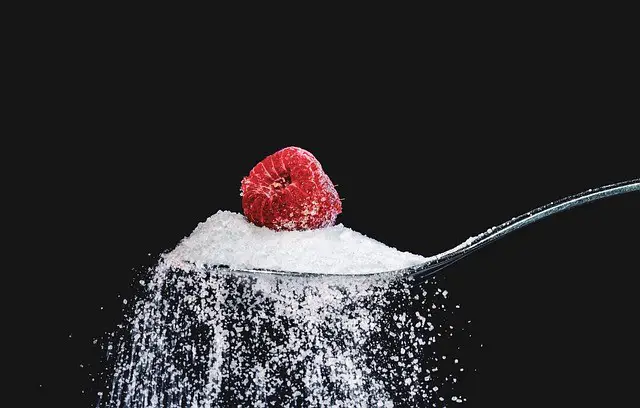
What do table sugar, coconut sugar, honey, high-fructose corn syrup, and maple syrup have in common other than being sweeteners? They are high in carbs. Carbs in the human body are what are broken down to give glucose. This means if you eat too many carbs, you will produce too much glucose. This will in turn increase your blood sugar levels. This can increase insulin resistance which leads to diabetes.
White sugar and the rest may contain natural sugar, but the kind of sugar in them is a simple sugar. These kinds of carbs are digested and absorbed quickly into the bloodstream leading to hyperglycemia. Consuming these options will kick you out of ketosis. This is due to increased insulin levels, which translates to reduced fat burning and more fat storage.
Before we discuss which low calories sugar to and not to use, let’s understand what exactly these sugar alternatives are.
Low-Calorie Sweeteners
You know there are sugar alternatives, but do you know what exactly they are? What is so different about them compared to traditional sugar?
What is Low-Calorie Sugar?
When you hear sugar alternatives, nonnutritive sweeteners, sugar substitutes, low calories sugar, or intense sweeteners, we are referring to the same thing. Non-nutritive sweeteners are substitutes for regular sugar. They are used in common foods and drinks to give them their sweet flavor.
What differentiates your white sugar or refined sugar from your sugar replacement option?
Natural sugars like honey, coconut sugar and raw sugar or syrups like maple syrup, agave and corn syrups can have an impact on blood sugar. This is because their main ingredient is a type of sugar. Regular sugar is made from sucrose while syrups are from fructose.
How about your sugar alternatives in comparison to table sugar? The main difference is low-calorie sugars have 25% to 90% fewer calories. Besides, they have a higher intensity of sweetness than caloric sugars.
There are both natural sweeteners and artificial sweeteners. Let’s find out which ones they are.
Natural Sweeteners
Contrary to what most people think, there are many of these sugar replacements available in the market. They come from plants or fruits. They also have a complex taste compared to their artificial counterparts. Here are low calories sugar from natural sources and their effects on the body.
Stevia Sweetener

One of the high-intensity sweeteners, Stevia is one of the popular additions to a healthy diet. Made from the leaves of the stevia Rebaudiana plant, stevia has few calories, a glycemic index of 0, and is 200 times sweeter than refined sugar.
The sweetness of Stevia comes from the compounds Rebaudioside A and Stevioside. Although, the U.S. Food and Drug Administration does not approve of the former. It comes under the brand names SweetLeaf, Pure Via, Sun Crystals, and Truvia.
Besides being low in calories, why should you choose Stevia as an alternative to sugar? Studies have shown that as an alternative sweetener, stevia can be good for blood sugar management. It can:
- Increase production of insulin
- Promote insulin sensitivity of cell membranes
- Stabilize blood glucose and insulin
- Counter the pathophysiology of diabetic complications
Clinical studies have proven that using Stevia had no significant difference in insulin or glycosylated hemoglobin, making it a good, refined sugar substitute. Evidence from human studies shows that stevia extract intake can help improve insulin resistance by altering gut bacteria.
In terms of effects on weight management, animal studies have shown that using stevia intake has no effect on body weight, energy intake, or feeding behaviors. Research from human studies has proven that Stevia is a good alternative to sugar, especially for diabetics.
You can also use stevia to lower blood pressure in hypertensive patients. However, it does not have the same effects on normotensive individuals.
Although it is among the good sugar alternatives, diabetics should be careful with the type of this sweetener they consume. The extract usually leaves behind a bitter taste that most people dislike. Due to this, some manufacturers add flavor enhancers to boost their flavor profile.
Some of these include sucrose, maltodextrin, dextrose, sugar alcohols, and natural flavorings that can have negative effects on blood sugar management. Check the food label before purchasing your Stevia to avoid Stevia products with the above ingredients that can contribute to your carb intake.
Erythritol Sweetener
This is one of the sweeteners that have been under attack lately. Sugar alcohol is found in fruits, erythritol has 70% of regular sugar’s sweetness.
On the good side, studies have shown that erythritol consumption has no effects on blood glucose or insulin levels. Actually, 90% of this sugar alcohol absorbed by the intestine is excreted in urine.
The common side effects of sugar are digestive issues like bloating and diarrhea, however, erythritol is more tolerable compared to the others. It can still be because these said issues, although, not as severe.
Why has this sweetener been receiving negative press despite having no impact on blood sugar? A study done to investigate the effects of erythritol on adiposity gain showed that high blood levels of this sweetener were associated with increased central adiposity gain. This was attributed to a genetic predisposition to convert sugar to erythritol through the pentose-phosphate pathway (PPP).
Other small studies have linked erythritol consumption to cardiovascular disease. This study examined the effects of this substitute for sugar on cardiovascular events and atherothrombotic risks. The results show an association between high levels of erythritol and a 3-year incident risk of stroke and heart disease. The studies were in vivo and in vitro. They also do not confirm that this sweetener causes stroke or heart disease, but show a link between the two. More human studies need to be done to prove that the same results translate to human beings.
Monk Fruit Sweetener
Monk fruit is among the popular food additives for keto dieters since it has no impact on blood sugar. This makes it great for preventing weight gain.
This sweetener, from the fruit in Southeast Asia, has no carbs or calories and has been shown to improve glucose uptake in the body. It contains antioxidants i.e., mogrosides that help reduce inflammation.
Monk fruit is considered safe with its only downside being its price tag, due to the rarity of the fruit it is extracted from.
Xylitol
This is a sugar alcohol that is considered a substitute for sugar. This nonnutritive sweetener has a glycemic index of 30, meaning it can cause slight blood sugar spikes. Of all of our options, this one taste more like sugar, and consuming it in small amounts can reduce negative effects on weight management.
Xylitol has been shown to reduce tooth decay and oral infections. One study that assessed the effects of xylitol-containing products for the prevention of dental carries found that using fluoride toothpaste with 10% xylitol for over 3 years can reduce carries by 13% compared to fluoride-only toothpaste.
Like any sugar alcohol, this option can cause digestive issues. Ensure to consume in small amounts to avoid this.
Sugar alcohols i.e., xylitol and erythritol can be made from corn which is a high glycemic index food and can increase your body weight when consumed. Always check the labels to make sure you are going for the non-genetically modified option over the GMO.
Other natural sweeteners are allulose and tagatose. You know your natural sweeteners, so which are the artificial options available and are they a healthy choice?
Artificial Sweeteners List
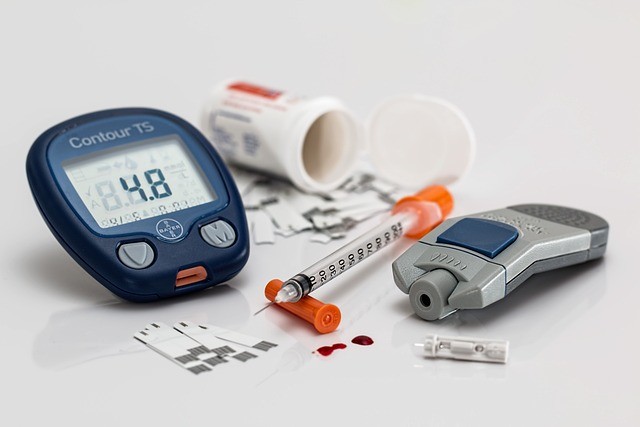
These are what you commonly find in your “sugar-free” or “diet” labeled food like Jello, soft drink, baked products, and dairy products. They include:
- Sucralose
- Aspartame
- Saccharin
- Acesulfame Sulphate
- Sorbitol
- Maltodextrin
Some of these sweeteners can be found in nature and be chemically manufactured. Sorbitol, for example, can be found in fruits like plums and cherries, but can also be manufactured.
Given the choice, always go for natural options over artificial sweeteners. Most of these may have been termed as safe and contain fewer calories than caloric sugars, but they do have an impact on insulin levels. Let’s find out how they impact your blood glucose levels and general health.
Aspartame
The FDA approved this nonnutritive sweetener as a general-purpose sweetener in 1996. But, how does it impact blood glucose and insulin levels?
One study that assessed the effects of Aspartame on glycemia found that it did not affect blood glucose, insulin, appetite, or body weight.
Despite this, it may not be wise for obese patients to use Aspartame. Evidence has shown that this general-purpose sweetener raises fasting blood sugar and lowers glucose tolerance in obese diabetics. It has been shown to cause obesity-related impairments.
Sucralose
This sweetener is made from sugar. Its common brand name is Splenda. It has zero calories and a glycemic index of 0. It is sweeter than sugar so a small amount can go a long way in helping you manage your weight.
However, it has been shown to affect gut health by altering the diversity of good bacteria increasing inflammation in the gut.
It has also been shown to alter hormone levels causing metabolic alterations leading to glucose intolerance, which increases the risks of developing diabetes.
Cooking with sucralose at high temperatures may not be wise since it disintegrates releasing toxic compounds into your food.
Acesulfame Potassium
You may have come across it under the name Sweet One or Sunett. It is 200 times sweeter than regular sugar. This product stimulates your sweet-taste receptors in your mouth which helps you enjoy sweet flavors without necessarily having to consume sugar.
There are a lot of controversies surrounding this artificial sugar substitute. However, the FDA has approved it safe with an acceptable daily intake of 15 mg per kg body weight.
In terms of blood sugar and insulin, some studies have shown that Acesulfame K increases glucose uptake by gut cells. High doses of acesulfame K of up to 150 mg/kg body weight has been shown to increase insulin release in animal models.
Acesulfame K may not raise blood sugar over a short period, but research is needed to prove its long-term effects on insulin and blood sugar.
Maltodextrin
If you’re diabetic or want to stay in ketosis, keep off this sweetener. Maltodextrin has a higher glycemic index (95) than sugar, meaning it will spike your blood sugar faster. This is because it is made from starchy foods like wheat, rice, potatoes, and corn.
Besides spiking blood sugar, this artificial sweetener has been shown to alter the balance of gut bacteria. Evidence shows that it increases the activity of Escherichia coli, a bacteria that is associated with the development of Crohn’s disease. It also promotes the survival of Salmonella bacteria that causes gastroenteritis.
Before purchasing your foods, or if you are looking for a sugar replacement, artificial sweeteners may not be your best option. Although, between them and sugar, which is the lesser of two evils?
Which is Worse Sugar or Artificial Sweeteners?
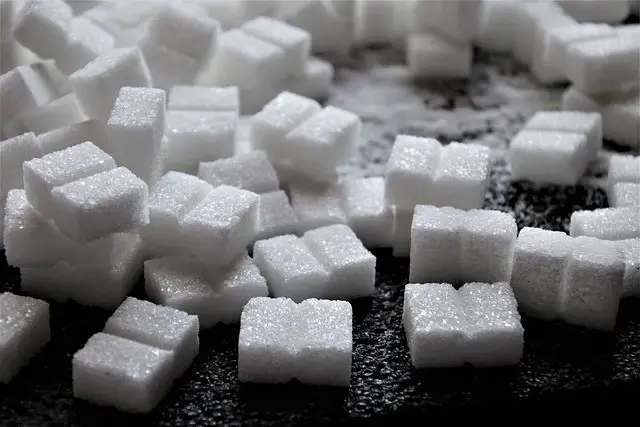
There is so much controversy surrounding artificial sweeteners. In my opinion, sugar is better than artificial sweeteners. It is better than any added sugars as well. Before running for your sugar-free soda, try thinking about the types of sugar in it. Try to moderate your intake, don’t overdo it.
Some artificial sweeteners like saccharin, sucralose and maltodextrin spike your blood sugar. Their impact is more than regular sugar. So these ones are best avoided, especially if you struggle with keeping your blood sugar in check. People using sucralose have 20% higher blood insulin levels than those on sugar.
Besides raising blood sugar, new research suggests that artificial sweeteners indirectly influence insulin sensitivity. This is by altering the balance of gut bacteria. They pose a bigger threat to your gut health than sugar.
Sugar and artificial sweeteners are not good for your health, but sugar is the lesser of two evils.
What Sweetener is in Coke Zero?
Manufacturers use artificial sweeteners in products termed as sugar-free or diet. Coke Zero contains a blend of acesulfame K and aspartame. With this information, is it wise to go for diet coke if you are diabetic?
Bottom Line
Low calories sugar are available to you. This is to reduce your sugar consumption without compromising on taste. Although, keep in mind that the natural ones are always better than the artificial ones.
Some natural sweeteners may contain blends with artificial flavorings. These are to enhance texture and taste. Ensure you always check the labels to know what to keep off from. Speak to a health coach to get information on these sweeteners and their effects on your body.
Which o these sweeteners do you use? How has it affected your blood sugar, food intake, and overall health? Tell us in the comments which of these you use to make your favorite foods!


